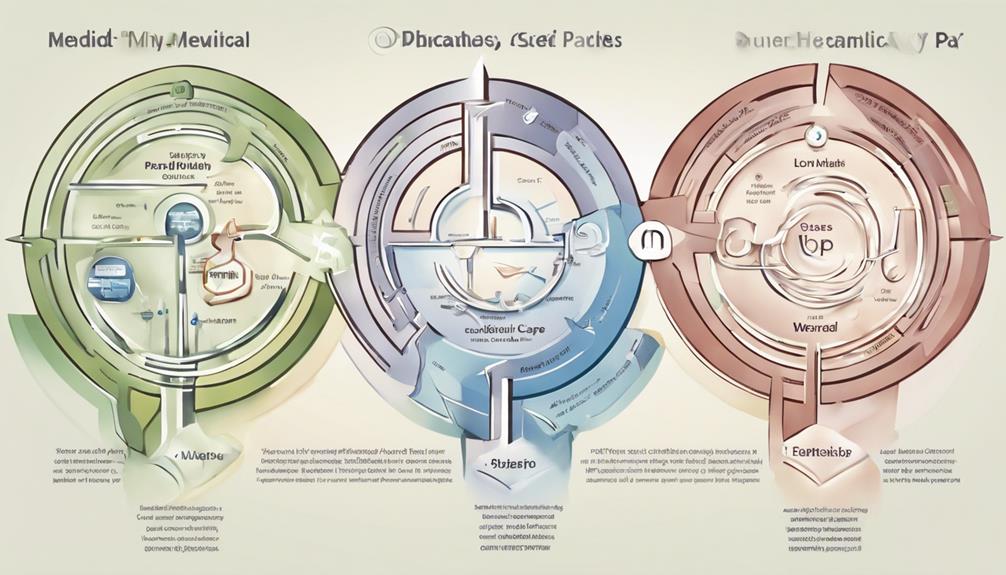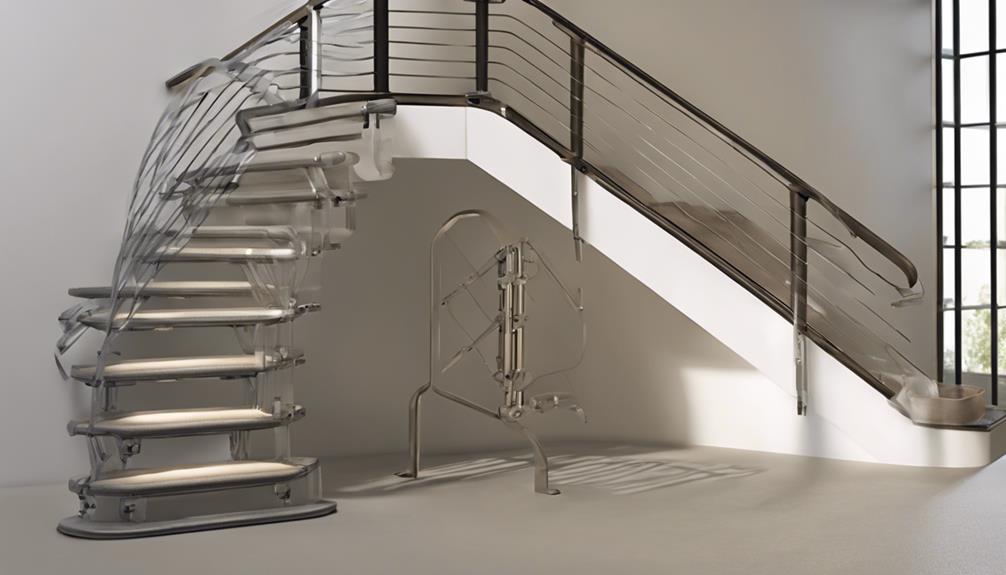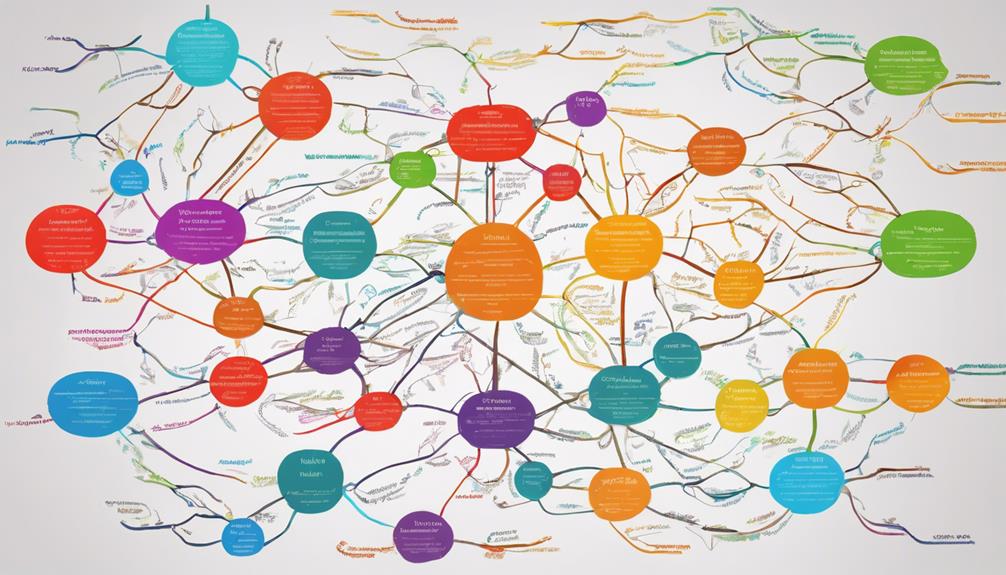Understanding the differences between Medicaid, Medicare, and private pay is essential when it comes to making healthcare choices. Medicaid eligibility is primarily based on income, while Medicare eligibility is determined by age or disabilities. Medicaid is a program that is run jointly by the federal government and individual states, whereas Medicare is a national program. It is possible to be enrolled in both Medicaid and Medicare at the same time. Medicaid provides coverage for personal care, while Medicare covers skilled nursing services. Medicaid typically comes with minimal costs, while Medicare may require premiums. Medicaid offers more comprehensive coverage compared to Medicare. Private pay allows for direct funding and personalized care. Both Medicaid and Medicare have specific coverage details and may involve out-of-pocket expenses. With private pay, individuals are responsible for covering all costs on their own. It is important to make a well-informed decision based on financial considerations and healthcare needs in order to find the best solution.
Key Takeaways
- Medicaid and Medicare offer specific coverage based on eligibility criteria.
- Private pay involves direct funding for personalized care.
- Medicaid covers home health care with minimal out-of-pocket expenses.
- Medicare provides coverage for skilled nursing, therapy, and medical equipment.
- Consider financial situation and healthcare needs when choosing coverage.
Medicaid Vs Medicare Eligibility
Have you ever wondered how Medicaid eligibility differs from Medicare eligibility when it comes to accessing home health care services?
Medicaid eligibility is primarily based on income and resources, while Medicare eligibility is primarily based on age (65 or older) or specific disabilities.
Medicaid is a joint federal and state program, with each state administering its own Medicaid program, while Medicare is a federal health insurance program. Individuals can be eligible for both Medicaid and Medicare, known as dual eligibility, allowing them to access benefits from both programs.
When it comes to out-of-pocket costs, Medicaid typically covers minimal or no expenses for medical services, while Medicare recipients may have premiums, co-pays, and deductibles to contemplate.
Understanding these differences in eligibility criteria between Medicaid and Medicare is essential for individuals seeking home health care services and financial assistance.
Coverage Variations: Medicaid Vs Medicare

When comparing Medicaid and Medicare for home health care coverage, it's important to note the differences in payment options and eligibility requirements.
Medicaid is based on financial need and specific criteria, providing extensive coverage for personal care and community-based services.
On the other hand, Medicare covers skilled nursing, therapy, and medical social services for eligible individuals, along with hospital stays and hospice care.
Payment Differences Between Medicaid and Medicare
Understanding the payment differences between Medicaid and Medicare is essential for individuals considering home health care services. Medicaid typically covers personal care services, while Medicare may cover skilled nursing, therapy, and medical equipment related to home health care. The payment structure varies between the two programs, with Medicaid recipients often facing minimal or no costs, whereas Medicare recipients may encounter premiums, co-pays, and deductibles. To illustrate the disparities further, let's explore a comparison table:
| Aspect | Medicaid | Medicare |
|---|---|---|
| Coverage Type | Personal care services | Skilled nursing, therapy, medical equipment |
| Cost for Recipients | Minimal to no costs | Premiums, co-pays, deductibles |
| Eligibility | Based on income and resources | Age 65 and over, specific conditions |
| Program Funding | Joint federal and state program | Federal health insurance program |
Understanding these differences can help individuals make informed decisions when seeking home health care services.
Eligibility Requirements Comparison
How do the eligibility requirements for Medicaid and Medicare differ regarding coverage variations?
Medicaid eligibility is primarily income-based, providing coverage for individuals with limited financial resources. In contrast, Medicare eligibility is mainly age-based, catering to individuals aged 65 and older, as well as those with specific disabilities.
When it comes to home health care services, Medicaid typically offers extensive coverage with minimal to no out-of-pocket costs for eligible individuals. On the other hand, Medicare recipients may encounter premiums, co-pays, and deductibles for home health care services.
Understanding these distinctions is essential for individuals seeking appropriate home health care services, as it helps them navigate the different eligibility criteria and potential out-of-pocket expenses associated with each program.
Private Pay Options for Home Care
Private pay options for home care involve individuals directly paying for services out of their own pocket. Unlike services covered by insurance such as Medicaid or Medicare, private pay requires individuals to fund their care independently.
This method offers the benefit of personalized care, allowing individuals to tailor services to their specific needs and preferences. Payment arrangements for private pay home care can be negotiated directly with the care provider, providing flexibility and control over the care received.
With private pay options, individuals have the freedom to choose the services that best suit their unique situation. This approach guarantees that the care provided is individualized and focused on meeting the specific requirements of the person receiving assistance.
Differences in Financial Assistance Programs

What're the key disparities among financial assistance programs like Medicaid, Medicare, and private pay for home health care services?
Medicaid is a program that helps individuals with limited income and resources, while Medicare primarily serves those aged 65 and older. Medicaid and Medicare have specific eligibility criteria and coverage options tailored to the needs of their beneficiaries.
On the other hand, private pay for home health care services involves individuals directly paying for non-medical assistance and companionship at home without relying on government assistance. Understanding these differences is important for selecting the right financial assistance program for home health care services.
Medicaid and Medicare offer coverage for a variety of healthcare services, whereas private pay requires individuals to cover the costs themselves. By knowing the distinctions between these financial assistance programs, individuals can make informed decisions when seeking home health care services.
Medicaids Role in Home Health Care

Medicaid plays an essential role in home health care by providing coverage for services like skilled nursing, therapy, and personal care. This program considers income and resources to determine eligibility, ensuring it's accessible to those with limited financial means. Recipients often benefit from a wide range of covered services with minimal or no out-of-pocket costs, making Medicaid an important support system for individuals in need of home health care.
Medicaid Coverage Criteria
When determining eligibility for home health care services under Medicaid, individuals with limited income and resources must meet specific criteria set by each state. Medicaid's coverage criteria include services like skilled nursing care, therapy, personal care services, and medical equipment. These criteria aim to support individuals who may not afford these services out-of-pocket.
Reimbursement Rates for Providers
Understanding the reimbursement rates for home health care providers under Medicaid is essential for ensuring financial sustainability and quality care delivery. Medicaid plays an important role in financing home health care services for low-income individuals. However, Medicaid reimbursement rates are often lower than those of Medicare, varying by state. These rates can impact the availability and quality of services provided.
Providers must navigate Medicaid's complex reimbursement structure to maintain financial viability while delivering excellent care. It's important for home health care agencies to comprehend these rates to sustain operations and effectively meet the needs of Medicaid beneficiaries. By understanding the nuances of Medicaid reimbursement rates, providers can continue to offer essential services to those who rely on them the most.
Limitations on Covered Services
Covered services under Medicaid for home health care may be subject to limitations based on medical necessity and state-specific regulations. While Medicaid typically covers a wide range of services such as skilled nursing and personal care, some restrictions may apply. These limitations guarantee that services provided are essential for the individual's well-being and recovery. Prior authorization is often required by Medicaid to confirm that the care is appropriate and cost-effective. Understanding these restrictions is vital for individuals relying on Medicaid for home health care services. Below is a table summarizing the covered services under Medicaid for home health care:
| Covered Services | Limitations |
|---|---|
| Skilled Nursing | Based on medical necessity |
| Personal Care | State-specific regulations may apply |
| Therapy | Prior authorization often required |
| Medical Equipment | Coverage determined by Medicaid guidelines |
Medicares Home Health Care Coverage

Medicare provides coverage for a range of home health care services, including skilled nursing and physical therapy. This coverage falls under Medicare Part A for eligible beneficiaries. Additionally, Medicare Part B covers outpatient services, such as home health care visits. To qualify for these benefits, Medicare has specific eligibility criteria, like needing a certification of need.
It's important to note that Medicare's home health care benefits are time-limited and aim to enhance health and independence. These services can include skilled nursing, physical therapy, and even medical social services. By understanding the coverage provided by Medicare for home health care, individuals can access the necessary services to support their well-being and recovery in the comfort of their own homes.
Comparing Medicaid, Medicare, and Private Pay

Comparing Medicaid, Medicare, and Private Pay options for home health care reveals distinct coverage differences based on income eligibility and payment methods.
Medicaid, a program for individuals with limited income, covers home health care services with minimal or no out-of-pocket expenses.
On the other hand, Medicare, designed for seniors aged 65 and over, provides coverage for skilled nursing, therapy, and medical equipment, but recipients may encounter premiums and deductibles.
Private pay involves out-of-pocket payments or long-term care insurance for non-medical assistance and companionship.
Understanding these variances is crucial for selecting suitable coverage for home health care services.
Medicaid and Medicare cater to different demographics, with Medicaid focusing on lower-income individuals and Medicare on seniors.
Private pay offers flexibility but requires individuals to cover expenses independently.
Consider your financial situation and healthcare needs when choosing between these options to guarantee adequate coverage for skilled nursing and other essential services.
Considerations for Home Health Care Choices

When evaluating home health care choices, it's essential to carefully consider coverage, costs, and eligibility under various payment options such as Medicaid, Medicare, and private pay. Here are three key considerations to keep in mind:
- Coverage:
Medicaid and Medicare offer specific coverage for home health care services based on eligibility criteria. This coverage can include skilled nursing care, therapy services, and personal care assistance. Private pay options, conversely, may offer more flexibility regarding services covered but often require individuals to pay out-of-pocket for these services.
- Eligibility:
Medicaid and Medicare have set standards for eligibility for home health care services. Individuals must meet certain criteria to qualify for coverage under these programs. Private pay options, however, are typically available to anyone who's willing to pay for the services.
- Costs:
While Medicaid and Medicare provide coverage for home health care services, there may still be some out-of-pocket costs involved, such as copayments or deductibles. Private pay options require individuals to cover the full cost of care themselves, which can vary depending on the level of care needed and the provider chosen.
Frequently Asked Questions
Does Medicare Pay for Home Assistant With Medicare?
Yes, Medicare typically does not cover non-medical home care services like assistance with activities of daily living. Medicare covers medically necessary home health services provided by skilled professionals. Private pay options or Medicaid may cover non-medical assistance at home.
What Are the Major Differences Between Medicare and Medicaid?
We find distinctions between Medicare and Medicaid in their target populations and funding sources. Medicare aids seniors and disabled individuals funded federally, while Medicaid supports low-income groups with joint federal and state funding, impacting eligibility and benefits.
Does Medicare Part B Cover Caregivers?
No, Medicare Part B does not typically cover caregivers or personal care services provided by non-medical caregivers. It focuses on medically necessary services like doctor visits. For personal care, individuals may need private pay options.
Which Type of Care Is Not Covered by Medicare?
Not all types of care are covered by Medicare. Non-medical services, like companionship and personal care, are not included. It's essential to understand the differences between what Medicare covers and what might require private pay or other insurance options.
How do Medicaid, Medicare, and Private Pay options impact home health care services for individuals with Parkinson’s Disease?
The American Parkinson Disease Association (APDA) plays a vital role in impacting the discovery of home health care services for individuals with Parkinson’s Disease. With assistance from Medicaid, Medicare, and Private Pay options, the APDA ensures that patients can access necessary treatments, therapies, and support. These financial options help elevate the quality of care, improve patient outcomes, and promote a better quality of life for individuals with Parkinson’s Disease.
Conclusion
To sum up, grasping the distinctions between Medicaid, Medicare, and private pay for home health care services is essential for making informed decisions about care options.
Each program has its own eligibility requirements, coverage variations, and financial assistance options.
By comparing and contrasting these options, individuals can select the best option for their specific needs.
Stay tuned for more information on understanding the complexities of home health care services.









